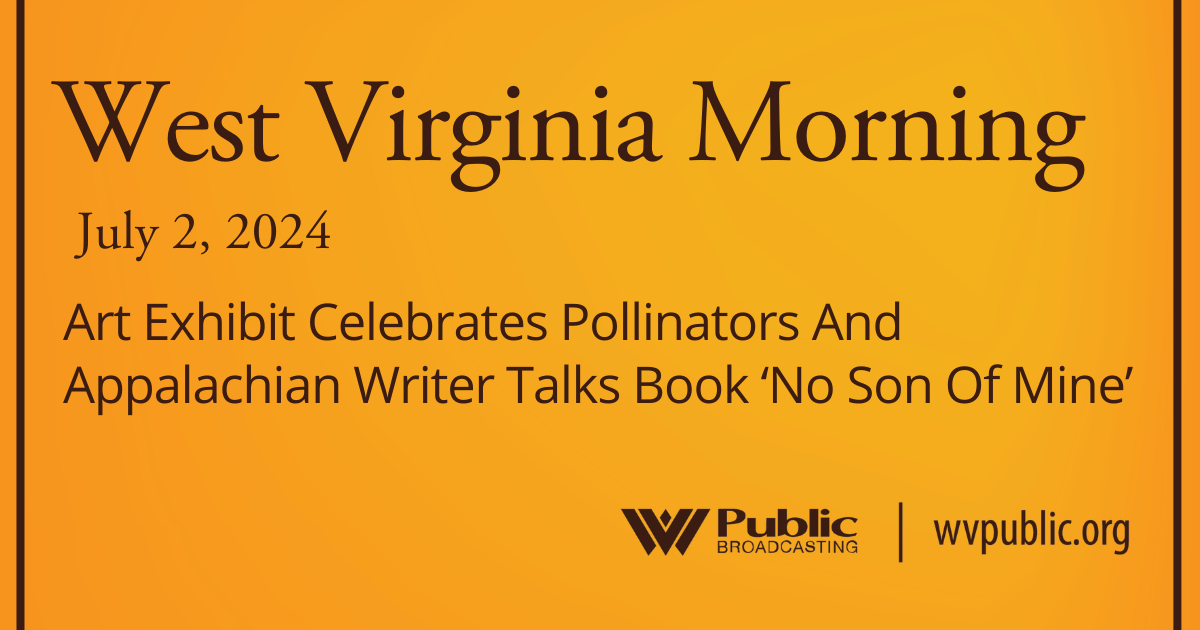On this West Virginia Morning, writer Jonathan Corcoran grew up in Elkins. While in college, his mother discovered he was gay. She disowned him and told him to never come back to West Virginia. She died in 2020. They never reconciled.
Corcoran, a writing professor at New York University, has written a book, No Son of Mine, which explores grief and his relationship with his mother. Inside Appalachia Producer Bill Lynch spoke with the author, who began with a reading.
Also, in this show, we have the latest story from The Allegheny Front, a public radio program based in Pittsburgh that reports on environmental issues in the region. Their latest story takes us to an art exhibit highlighting our local pollinators.
West Virginia Morning is a production of West Virginia Public Broadcasting which is solely responsible for its content.
Support for our news bureaus comes from Shepherd University.
Emily Rice produced this episode.
Listen to West Virginia Morning weekdays at 7:43 a.m. on WVPB Radio or subscribe to the podcast and never miss an episode. #WVMorning
